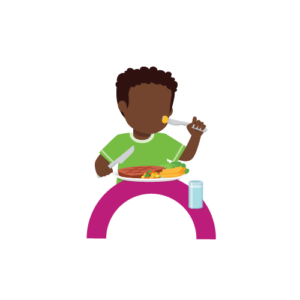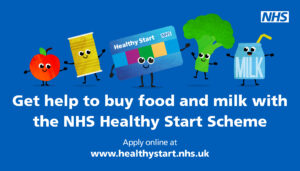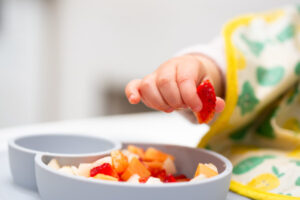 Your toddler needs lots of energy and nutrients so will need three sit-down meals alongside nutritious snacks across the day to get all the nutrients they need. Children aged six months to five years should be given vitamin supplements containing vitamins A, C and D every day.
Your toddler needs lots of energy and nutrients so will need three sit-down meals alongside nutritious snacks across the day to get all the nutrients they need. Children aged six months to five years should be given vitamin supplements containing vitamins A, C and D every day.
Healthier Families has expert NHS advice, helpful videos, tips from other parents, and lots of simple, healthy recipes and meal ideas. This guide has been written to provide practical ideas for healthy drinks and snacks for children aged one to four years. Breastfed infants can continue to breastfeed for as long as mum and baby want to. If you're breastfeeding, Beside You has some great information on breastfeeding older children and toddlers or getting ready to stop breastfeeding if you are ready.

If you’re receiving a qualifying benefit and are pregnant or have parental responsibility for at least one child under the age of 4, you can apply online for the NHS Healthy Start card. This card can be used to buy milk, fruit and vegetables, pulses, and infant formula milk. You can also get vitamin supplements.
Fussy feeding
It is really common around the age of eighteen months to two-years, for children to develop some ‘fussy eating’ behaviours. They may like particular foods some days and not others, suddenly stop liking something altogether or be upset when things haven’t been prepared a certain way.
Refusing to eat what they are given is a way your child may start to exert control in their lives. Letting them make choices can avoid battles during mealtimes. This can be a frustrating time for parents but this is a normal phase of toddler development and will pass, so take a deep breath and don’t take this personally.
There will be days when they eat more, some when they eat less, and then days when they reject everything. It may take ten attempts or more for your baby to get used to new foods, flavours and textures. Be patient and keep offering a variety of foods – even the ones they don't seem to like – and let them get used to it in their own time. Children pick up on your anxieties so the most important thing is to remain calm, and stick to the basics.

- Have regular meal and snack times, avoiding grazing between meals.
- Give water between meals.
- Sit down for meals and snacks with minimal distractions so that your child can focus on eating.
- Trust your child to know how much or whether they eat what has been offered.
- Take uneaten food away without comment and try not to bribe, cajole, or get angry with your child to make them eat. Don’t offer an alternative.
- Reassure your child another meal or snack will be coming soon if they complain they are hungry. Try to stick to your regular meal and snack times.
- Make sure they are hungry, but not starving, before meals and allow them to eat to fully satisfy their appetite.
- Eat the same family meals together with your child as often as you can so they learn from you. If you want your kids to eat vegetables and drink water for example, they need to see you do it and enjoy it.
Hear from other parents about their experiences with fussy eating.
Kent Health Visiting Team and the Children's Dietetics Team have made 'A parent and carer survival guide to feeding toddlers' with tips and strategies to navigate this phase and help your child develop a healthy diet lasting into adulthood.
Supporting appropriate growth
It can be hard to trust your child’s instincts during this time, if they seem to hardly touch their food but continuing to feed them responsively and following their cues is still important. If you’re concerned about your child’s growth or are worried about extreme fussy eating, talk to your health visitor or GP who can refer you to see a dietitian for more support and reassurance.
Your child’s weight and length will be measured and plotted on the growth charts at the back of their red book during their development review. This gives you a good opportunity to discuss your child’s growth. If your child is following their expected growth line, along their centile curved line and has plenty of energy then this tells you they are eating the right amount for them. Trust your child to know how much they need to eat and drink.
Finding out your child is overweight or gaining weight faster than expected can be upsetting. First of all, do not panic or blame yourself. There is lots of support available for families. Your local Health Visiting Team can support you find out more about local services and ideas to support your family be healthier.
Useful resources
- Best Start in Life has expert NHS advice, helpful videos, tips from other parents, and lots of simple, healthy recipes and meal ideas.
Page last reviewed: 01/01/2025, next review due: 01/01/2028